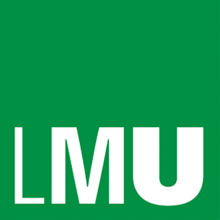Celebrating its 150th anniversary, the Technical University of Munich has received a spectacular birthday gift – a new campus.
Funded by a donation from the German supermarket tycoon Dieter Schwarz thought to be worth more than €100 million (£88.5 million), TUM’s new campus marks several firsts in German higher education, and illustrates how the university hopes to be an expansive, competitive force in a system traditionally marked by equality and cooperation.
The new, business-focused campus will be based in Heilbronn, a picturesque city three hours’ drive north-west of Munich in the neighbouring state of Baden-Württemberg.
This may sound unremarkable, particularly from a UK perspective, where several universities have established London campuses to capitalise on the capital’s international student market. But the new campus is the first established by a German university outside its own federal state, explained Wolfgang Herrmann, TUM’s president, speaking to Times Higher Education in Munich. The development “is totally new in the German university landscape”, he added.
What attracted the donation was TUM’s record of merging business and technical education, he explained – business students at the new campus will have to take engineering, informatics or chemistry alongside their other studies. This model has been rolled out at TUM’s existing School of Management, where the technical part is for many students the “toughest part of the entire study course”, Professor Herrmann said – his own daughter had to retake her informatics exams twice.
The campus, which includes 20 endowed professorships, is believed to be the result of the largest philanthropic donation to a German university, said Professor Herrmann, a significant move in a country with little tradition of alumni donations or big gifts from the super-rich.
TUM has been attempting to create a philanthropic culture since 1998, and has so far raised about €300 million for specific projects, said Professor Herrmann, who has overseen the entire process. He was appointed president in 1995, making him the longest-serving university head in Germany.
Since 2010, TUM has also tried to raise money to create a US-style endowment, although with €40 million so far, it is nowhere near the Ivy League yet. “That’s the biggest one [endowment] in a German university – you can tell how difficult it is. Germany has a different tradition,” he said.
But the attempt to raise funds is also about putting down a marker about the university’s “entrepreneurial spirit”, he said. Universities can either “take it [into their own] hands” or “complain” about not having enough money, he said. “Most universities complain,” he added.
A glance at TUM’s most recent accounts shows that it still receives only a tiny fraction of its income from private businesses or donors – it is still overwhelmingly dependent on state funding and other public bodies such as the European Union.
Nevertheless, TUM’s “entrepreneurial” impulses are part of a broader shift in German universities to become more competitive and differentiated, something spurred by the Berlin government with its Excellence Initiative, which encourages rival bids for pots of research money and special status (although even this often asks for joint applications between institutions).
This new stratification “adds to the reputation and visibility of the German system”, argued Professor Herrmann. If some institutions race ahead, this acts as a “pull” that drags up “slower, smaller, younger universities”.
Universities still have a duty to teach students who can go on to serve their local area, he cautioned, and this is “not necessarily the product of [high-] quality, internationally competitive research”. But Germany’s tilt towards excellence has jolted universities across the country to make future plans and look critically at their research portfolios, he said.
Elsewhere in Munich there is scepticism that Germany will move any further towards US- or UK-style competition, with its attendant inequality.
Bernd Huber, president of LMU Munich, acknowledged that some German universities were pulling ahead in terms of research. But there is still no US- or UK-style hierarchy of prestige for graduates, he told THE – no Ivy League, Oxbridge or grandes écoles system. In Germany, “we do not have this effect where every chancellor or prime minister has come from Oxford”, he said.
Germany will create “beacons” that specialise in certain research areas, but will not end up with a system where “only 10 universities are very good”, he said.
“If you only look at the top institutions, the differentiated model looks very attractive, but if you consider the system as a whole you might argue that it is better to have a model with less variance. Maybe the current situation in Germany is not too bad,” he said, adding: “I do not see any move to the US model.”
Register to continue
Why register?
- Registration is free and only takes a moment
- Once registered, you can read 3 articles a month
- Sign up for our newsletter
Subscribe
Or subscribe for unlimited access to:
- Unlimited access to news, views, insights & reviews
- Digital editions
- Digital access to THE’s university and college rankings analysis
Already registered or a current subscriber? Login










